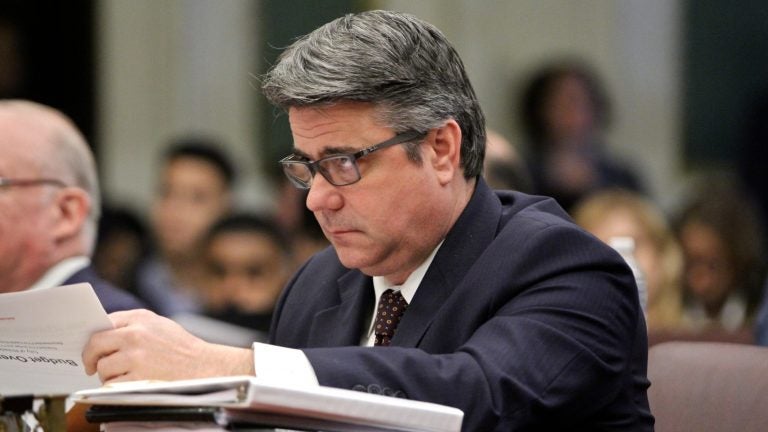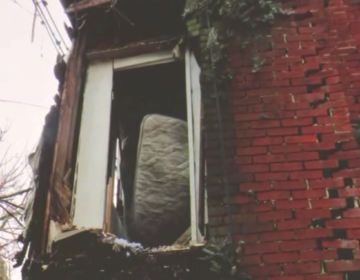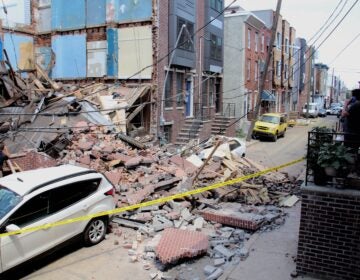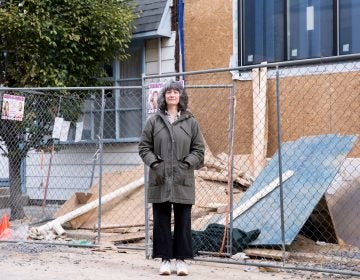Indicted Councilman Henon pushes for more L&I inspectors, dominates budget hearing
Henon dominated the hearing with testimony in favor of a moonshot bill he introduced in January, which would almost quintuple the number of department inspectors.

City Councilman Bobby Henon attends a budget hearing on March 1, 2018. (Emma Lee/WHYY)
This article originally appeared on PlanPhilly.
—
Philadelphia’s Department of Licenses and Inspections met with rapturous praise at its Wednesday budget hearing, as City Council members suggested that the agency ask for far more funding than officials planned to seek.
“We are in a position to hire more because of the stability and the growth of our economy right now,” said Councilman Bobby Henon in an interview after the hearing. “You hire more inspectors, the rate of return will come back tenfold. We need to add a couple zeroes to the amount of inspectors and the revenues we are collecting.”
Henon dominated the hearing with testimony in favor of a moonshot bill he introduced in January, which would almost quintuple the number of department inspectors. Awkwardly, the bill was introduced on his behalf that week, because it debuted the day that Henon was in court pleading not guilty to corruption charges.
Henon is a close ally of powerful electricians union president John “Johnny Doc” Dougherty, who was also indicted along with other union officials. The indictment includes a charge that the union and Henon directed L&I inspectors to punish their political and business adversaries.
At one point in the L&I hearing, Henon admitted the language in his bill is “a ridiculous number — it calls for 800 inspectors where there are currently 169 — but he said it is meant to provoke action. Cracking down on illegal construction would help the city catch unpermitted and tax-dodging businesses and that, in turn, could generate more revenue for the city, Henon said..
Henon’s remarks elicited cheers from a variety of workers with the Philadelphia Building and Construction Trades Council who came out to support the councilman. They waved placards reading “Elderly Woman Loses Home in Botched Demolition Job” and “Construction Worker Dies When Wall Collapses On Him.”
Industry groups pushed back on Henon’s January bill for a provision that would create a contractor review board, which they argued would be dominated by — and push the agenda of — the city’s powerful building trades unions.
“This has nothing to do with union or nonunion,” said Henon. “This has to do with contractors who don’t pay taxes, don’t pull permits, don’t have licenses.”
No hearing is yet scheduled for the bill.
Commissioner: Unsafe buildings down 22 percent
Henon wasn’t the only Council member to praise L&I. The department and its leader, Dave Perri, were lauded by City Council President Darrell Clarke, West Philadelphia Councilwoman Jannie Blackwell, and Councilwoman Cindy Bass (who has her own bill to give the department more funding).
The accolades were notable, in part, because budget hearings are often forums for Council members to publicly clash with top administration officials. A few years ago, the department’s reputation wasn’t so robust. In the aftermath of the 2013 building collapse on Market Street near 20th Street, which killed six people, L&I came under intensive criticism and scrutiny.
For his part, Perri explained to Council members the spate of home collapses recently and talked up his department’s progress at demolishing structurally unsafe buildings.
“Through an aggressive enforcement program, a well-funded public demolition program, and an uptick in private demolitions, the number of unsafe buildings has decreased since the start of the Kenney administration by 22 percent,” said Perri. “The number of imminently dangerous building has been reduced 61 percent.”
He also emphasized that his department is developing a relationship with District Attorney Larry Krasner’s office, referring two cases to it for potential prosecution. In both cases, contractors accidentally destroyed basement retaining walls while doing illegal work, compromising neighboring rowhomes.
“Just because the developer or the contractor got lucky and didn’t kill or harm anyone doesn’t make his intent any less egregious,” said Perri.
There are ongoing investigations in both cases, but no decision has been made if a crime was committed.
WHYY is your source for fact-based, in-depth journalism and information. As a nonprofit organization, we rely on financial support from readers like you. Please give today.







